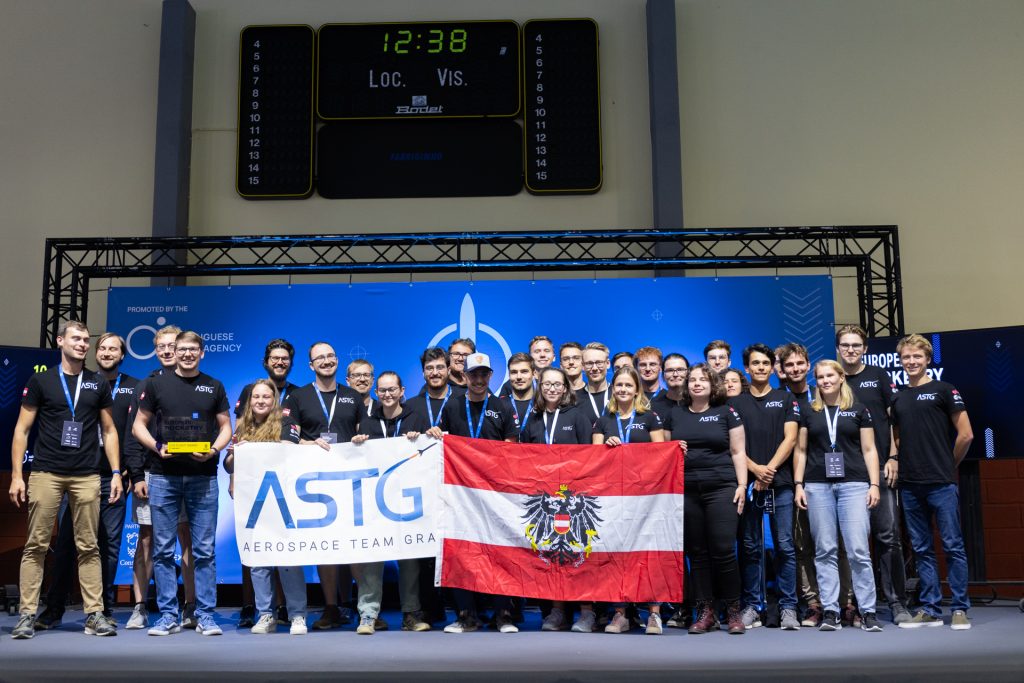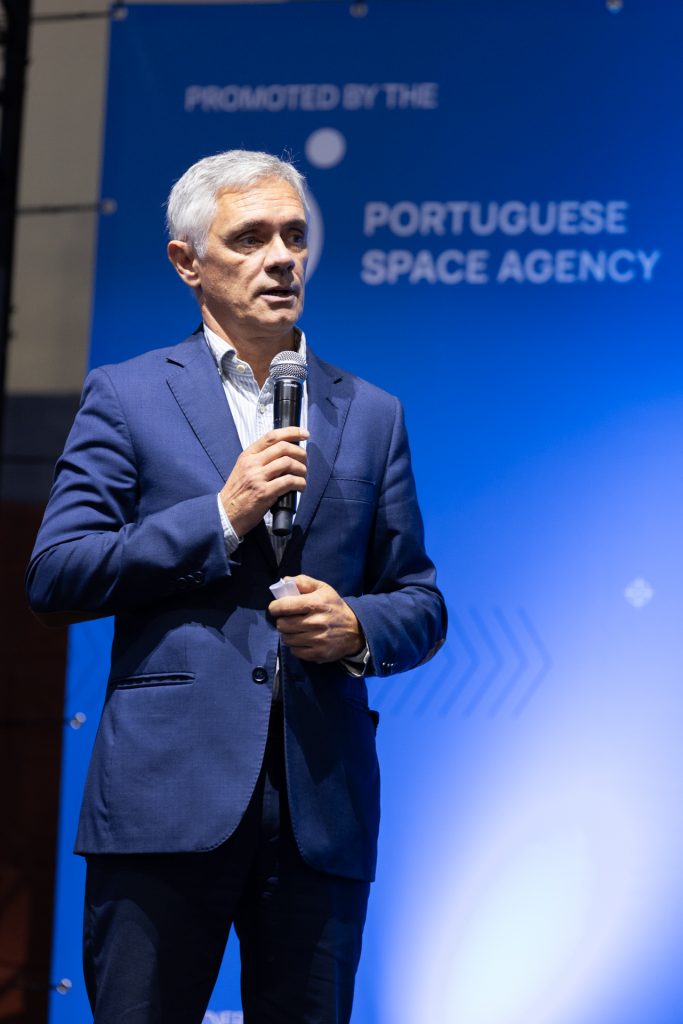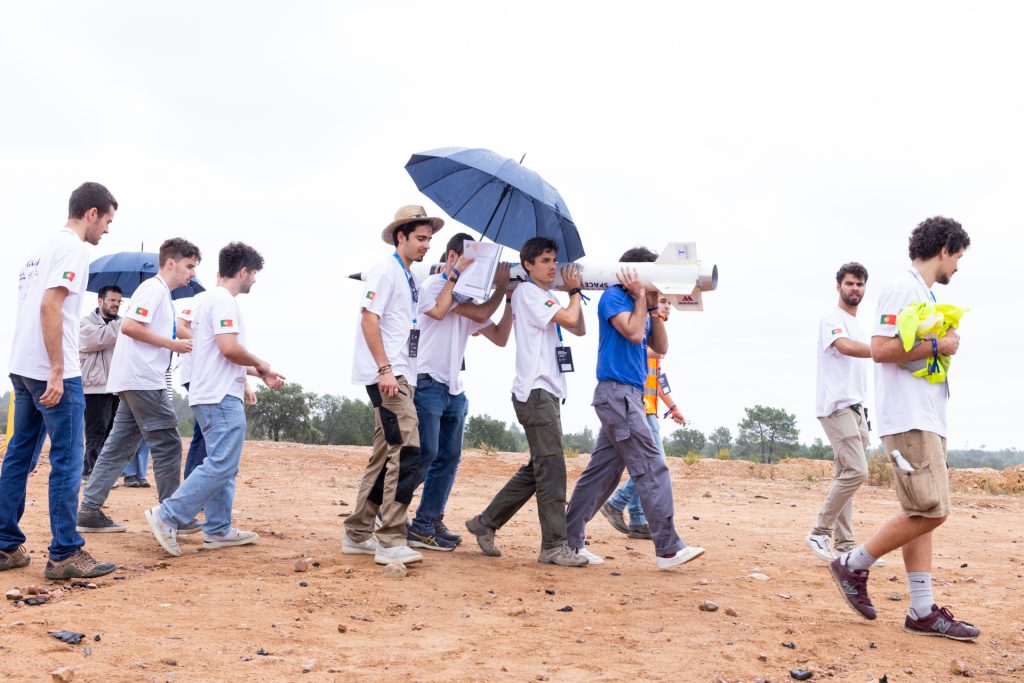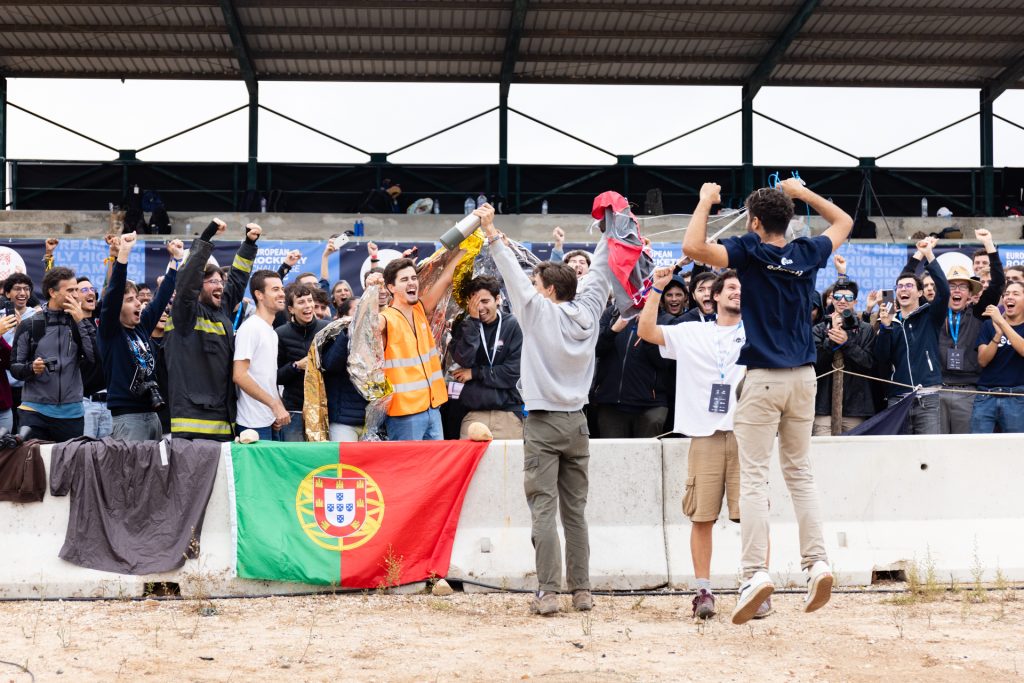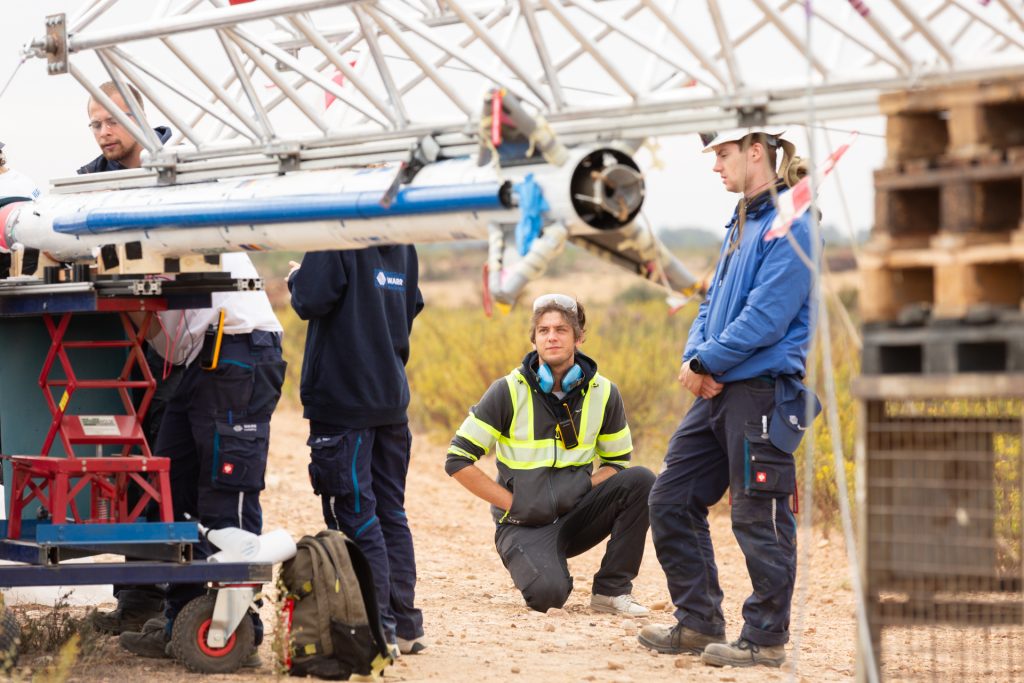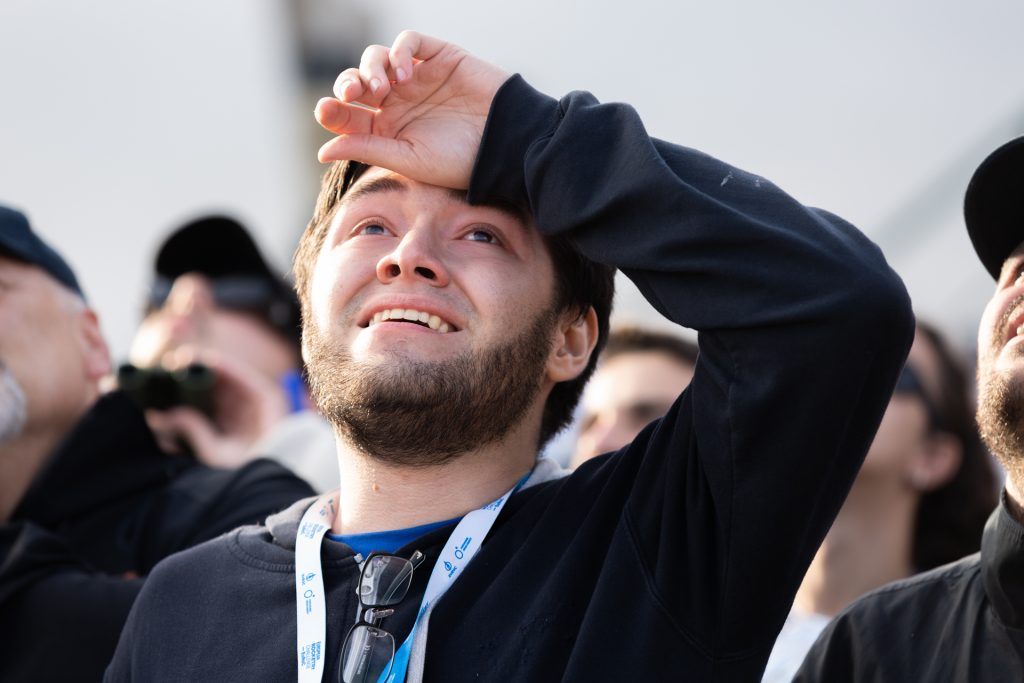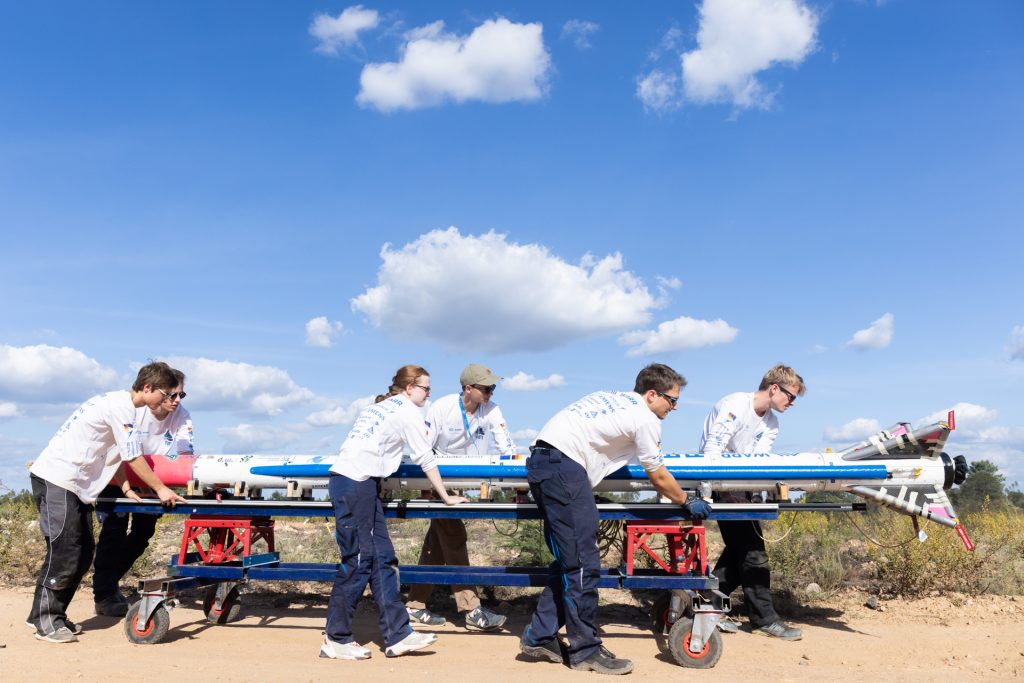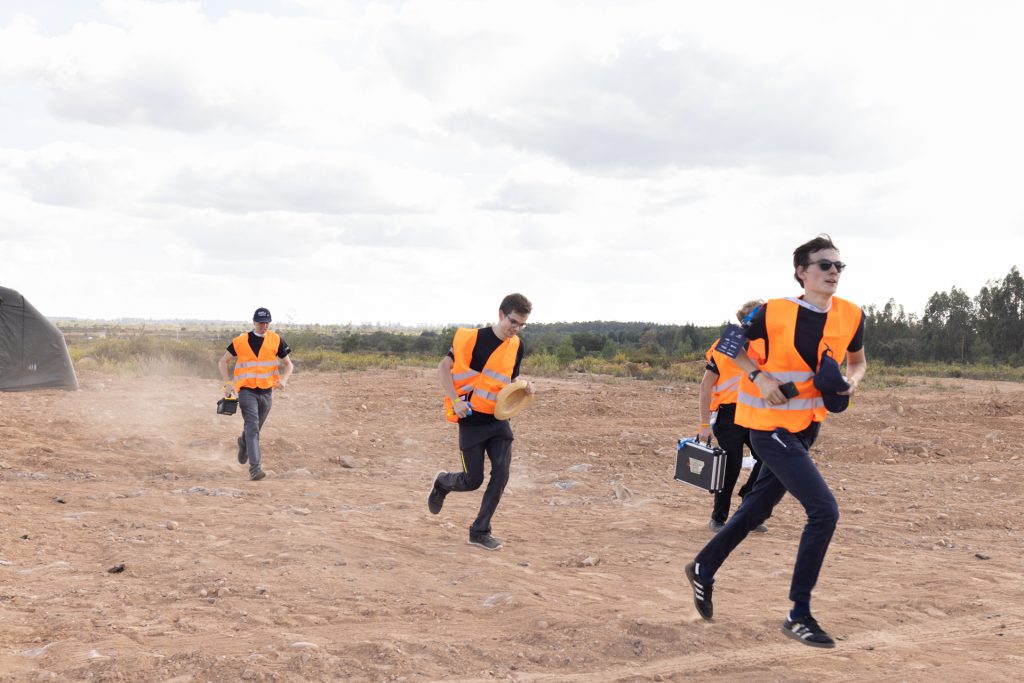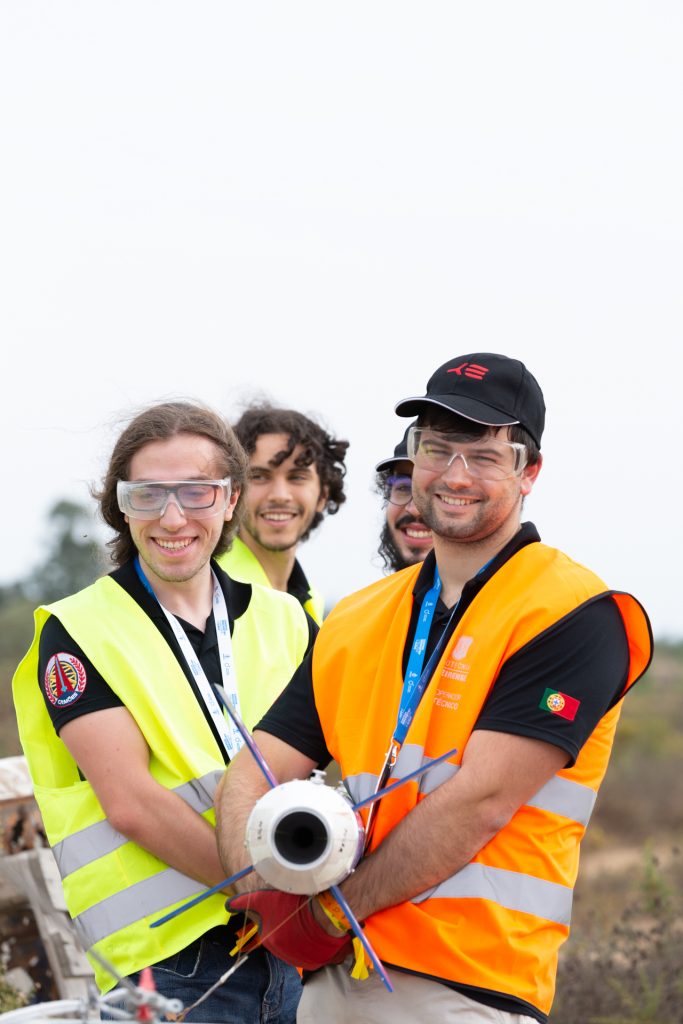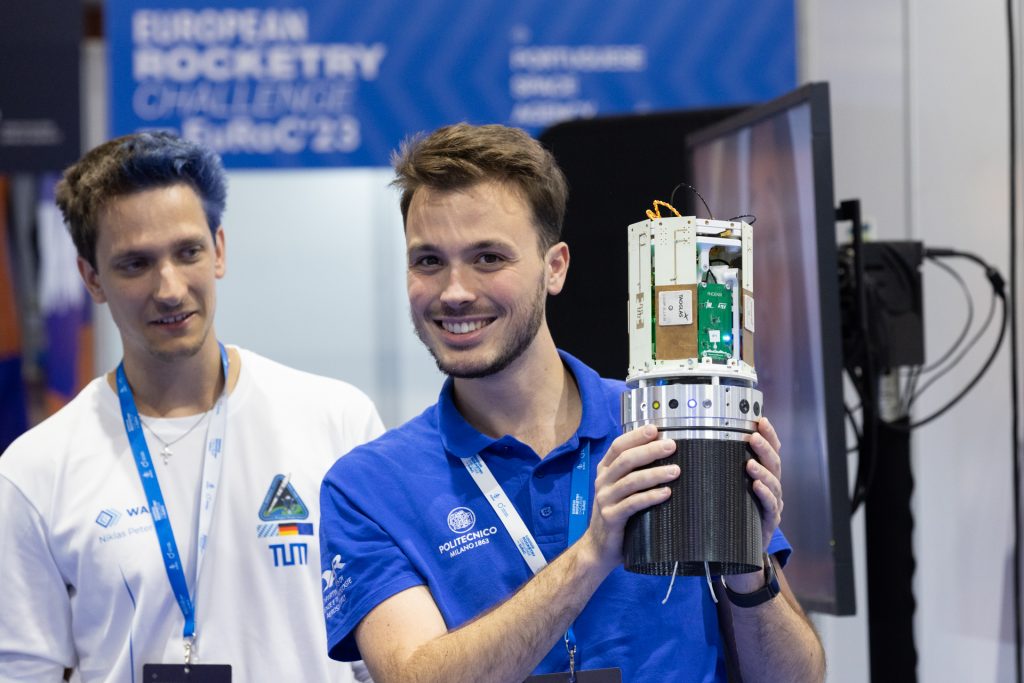Austrian Aerospace Team Graz wins EuRoC Award in 2023
The Austrian team won the 4th edition of the European Rocketry Challenge's EuRoC Award. The Portuguese squad RED, from the Instituto Superior Técnico, won the Payload Award. North Space, also from Portugal, became the second national team to launch its rocket in the competition.
Aerospace Team Graz, a team of university students from Austria, was the big winner of the 4th edition of the European Rocketry Challenge (EuRoC), a European university rocket launch competition organised by the Portuguese Space Agency, which took place in Constância last week. The winner got the best score in the various evaluation parameters to which the rocket launches are subject, including reaching the target altitude (between 3,000 and 9,000 metres).
In this competition, a unique one of its kind in Europe, the teams competed in two categories defined by the engine type and the height they wanted to reach with their rockets. Following four days of launches, the awards ceremony honoured six teams on Monday 14th October at the Constância Municipal Sports Pavilion. In addition to the EuRoC Grand Prix, Aerospace Team Graz from Austria also won the H3 Flight Award, distinguishing the team with the best flight in the hybrid engine category at the target altitude of 3,000 metres.
The awards were given after the teams’ performance was assessed by the EuRoC jury, comprising national and international rocketry experts. The panel of jury members evaluated the behaviour of the rockets in terms of target altitude, payload, design and quality of the technical report, among other parameters.
The team from Portugal, RED (Rocket Experiment Division), was the second best overall and won the Payload Award, honouring excellence and innovation in the payload on board the rocket. The Instituto Superior Técnico team competed for the third year and continued the tradition of naming its project after references in Portuguese literature. In Constância, they launched the Camões rocket in the S3 category (solid engine, target altitude of 3,000 metres).
The award in this category went to Faraday Rocketry from Spain’s Polytechnic University of Valencia. The Team Award, honouring the team spirit, went to the Greek ASAT (Aristotle Space & Aeronautics Team). Last year’s EuRoC champions, the Italians Skyward, failed to launch their rocket in Santa Margarida. They were the highest-scoring team concerning their technical report and received the Technical Award. The same went for newcomers WARR Rocketry, from Germany, who won the Design Award. For the second year in a row, ANACOM (Autoridade Nacional de Comunicações) recognised the team with the best spectral signature.
During his speech at the ceremony, Ricardo Conde, president of Portuguese Space Agency, said that EuRoC plays an essential role in boosting Europe’s projection in space: “We are extremely proud of EuRoC’s sustained growth, which is due, first and foremost, to the students themselves, who are coming year after year better prepared and with more ambitious projects. And we believe that EuRoC is already a key element for the future of the space sector in Portugal and Europe.”
The success of EuRoC has already contributed to the growth of national rocketry teams. North Space is one of these cases. The team comprises students from Instituto Politécnico do Porto, the Science and Engineering faculties of the University of Porto and the University of Aveiro. It became the second Portuguese team to launch its project at EuRoC. Although they didn’t win any of the prizes, the members of North Space were delighted that, “with only a year’s experience”, they had managed to make their SPATI-1 fly across the skies of Constância.
From the beginning, EuRoC has aimed to promote the development of scientific and educational skills by challenging students to launch their rockets. Since its first edition in 2020, the competition has attracted a growing number of participants. This year, it received a record of 48 applications, from which 25 teams were selected to launch their rockets. The competition presents many challenges with high technical standards and safety parameters that must be considered, inevitably leading to them giving up. With this spirit in mind, 19 teams travelled to Constância last week. Finally, 13 teams launched their rockets between 12 and 15 October at the Santa Margarida Military Camp.
Around 500 students from 14 countries with various academic backgrounds participated in the event.
Next year’s edition will take place in Ponte de Sor in early autumn 2024, in line with the premise announced last summer of moving EuRoC between Ribatejo and Alto Alentejo from year to year.

